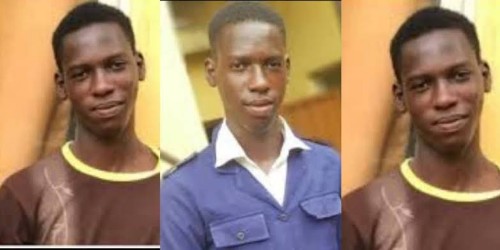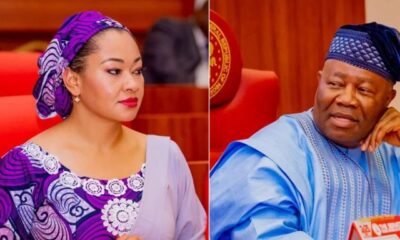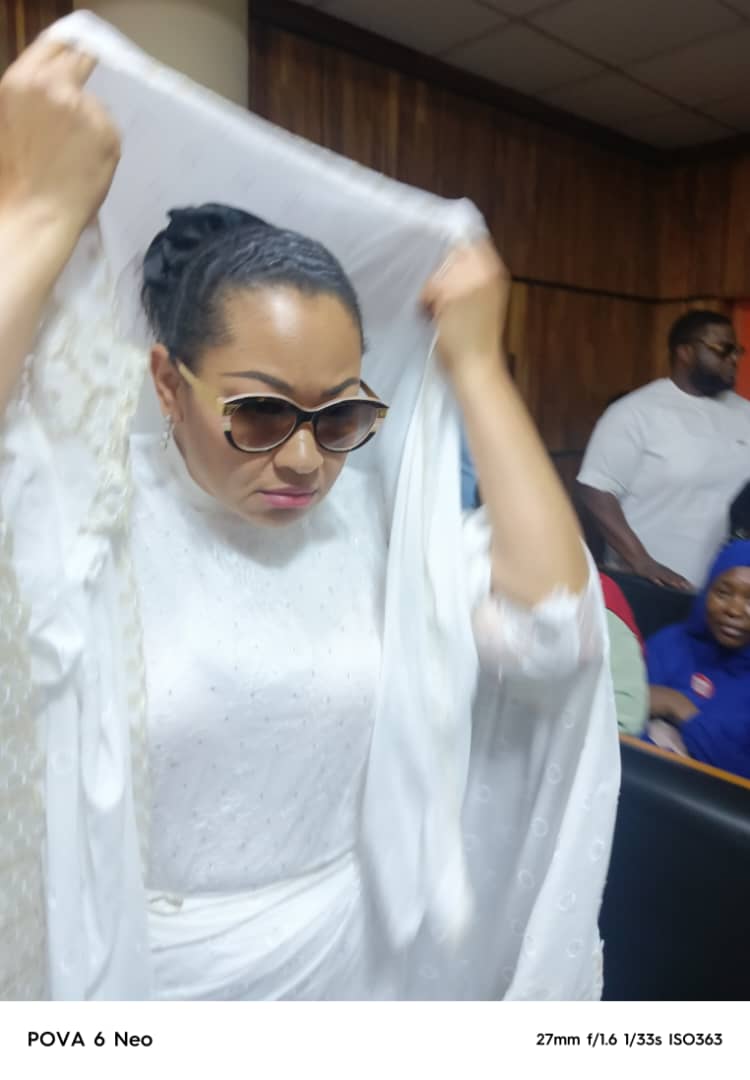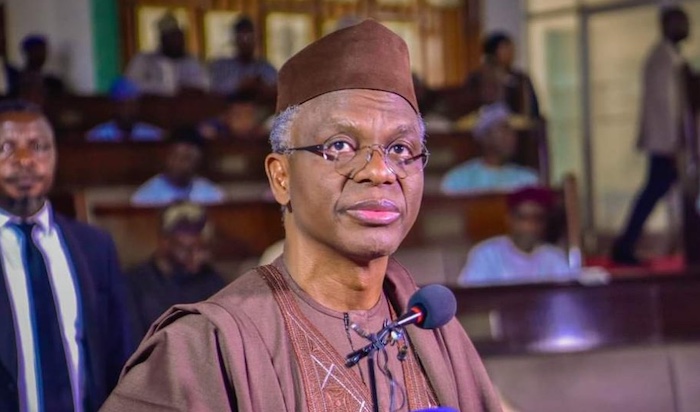A Federal High Court in Lagos has issued a ruling ordering the Lagos State Government to conduct a comprehensive investigation into the circumstances surrounding the death of Pelumi Onifade, a 20-year-old journalist who was arrested by police during the 2020 #EndSARS protests and subsequently found deceased in a mortuary.
The court, presided over by Justice Ayokunle Olayinka Faji, also directed the government to convene a coroner’s inquest to ascertain the cause of death and identify those responsible for the young journalist’s tragic demise.
This ruling was made in response to a lawsuit filed by Media Rights Agenda (MRA) against the police and the state government.
According to a statement released by Idowu Adewale, Communications Officer for MRA, the court’s judgment marks a significant step towards accountability and justice for Pelumi Onifade’s untimely death.
Justice Faji, the statement said, agreed that the government’s Chief Law Officer “cannot just conduct an inquest without a duplicate of the case-file” but he ruled that Section 74 of the Administration of Criminal Justice Law of Lagos State gives the Attorney-General the power to request a case file from the Commissioner of Police.”
Although the court dismissed five of the claims made by the MRA against the police on the grounds that there was no evidence before the court to support them, Justice Faji noted that none of the facts in the MRA’s affidavit was denied by the Attorney-General who only raised an issue of law, adding that in the course of oral arguments, the latter’s counsel also undertook to conduct an inquest.
A Lagos-based lawyer, Mr. Charles Musa, filed an originating summons on August 4, 2021, on behalf of the MRA, against the Lagos State Commissioner of Police, the Inspector-General of Police and the Attorney-General of Lagos State.
In the suit, the MRA asked the court to declare that Onifade’s shooting in Oko Oba in the Agege Local Government Area of Lagos State, by agents of the COP and the IGP on October 24, 2020, in the course of his journalistic work, is unconstitutional and a gross violation of his fundamental rights as guaranteed by Section 33 of the 1999 Constitution (as amended) and Article 4 of the African Charter on Human and Peoples’ Rights (Ratification and Enforcement) Act (Cap A9) Laws of the Federation of Nigeria, 2004;
“Mr. Onifade’s arrest and unlawful or restriction of his liberty by agents of the COP and the IGP on October 24, 2020, in the course of his journalistic work is unconstitutional and a gross violation of his fundamental rights as guaranteed by Sections 35, 39 and 46(1) of the 1999 Constitution and Articles 5 and9 of the African Charter;
“The constitutional and statutory duties of the respondents do not extend to unlawful detention of innocent individuals who have not been charged to Court or found guilty of any offence by a competent court of law in Nigeria; and the COP and the IGP have an obligation to investigate crimes committed against Mr. Onifade, a journalist exercising his right to freedom of expression as guaranteed under Sections 33 and 39 of the Constitution and Articles 4 and 9 of the African Charter.
“The MRA also asked the court to issue three orders, directing the respondents to launch a transparent, impartial and independent investigation into the circumstances of the death of Onifade whose body was found in a morgue in Lagos; directing them to conduct a coroner’s inquest to ascertain the cause of his death; and directing them to identify and prosecute those responsible for his death,” the statement added.
In his judgment, Justice Faji pointed out that although the Commissioner of Police and the Inspector General of Police were served with the originating summons and other processes in the suit, they did not file any response.
He noted that the MRA’s Programme Officer, Mr. John Gbadamosi, who deposed to the affidavit in support of the suit, did not witness any of the facts relevant to the matter, adding that there was also no documentation in support of the claim that Onifade’s corpse was deposited in a mortuary.
Justice Faji also observed that although there was a constant reference in the affidavit to the family of the deceased who, he said, would have the necessary information regarding their various interactions with the police, none of them filed any evidence in support of the incident. He therefore dismissed the claims against the police for lack of evidence.
Although the judge commended the Office of the Attorney-General of Lagos State for upholding the duties of the office by attending court and assisting the court in the matter, he noted that the explanation by the Attorney-General’s lawyer that the reason a coroner’s inquest was not conducted was because the duplicate of the case file was not forwarded to his office.
According to him, in response to the court’s question on what the Attorney-General did about the matter since being served with the court processes, the lawyer submitted that the Attorney-General is ready to conduct an inquest.
“Justice Faji stressed that the Attorney-General is not alleged to have known about the alleged unlawful killing of Mr. Onifade and is also not accused of being involved in the killing but that as stated by MRA, he has a duty to conduct an inquest into the circumstances of the death.
“He said indeed, in paragraph 15 of the counter affidavit, the 3rd respondent (the Attorney-General) has stated that he would prosecute anyone found to have a prima facie case established against him”.
“Justice Faji therefore directed the Attorney-General to take all necessary steps to see to the investigation of the circumstances of the death of Mr. Onifade and to conduct a coroner’s inquest to ascertain the cause of the death as well as identify and prosecute those responsible for his death,” the statement concluded.

 BIG STORY2 days ago
BIG STORY2 days ago
 BIG STORY4 days ago
BIG STORY4 days ago
 BIG STORY2 days ago
BIG STORY2 days ago
 BIG STORY4 days ago
BIG STORY4 days ago
 BIG STORY2 days ago
BIG STORY2 days ago
 BIG STORY4 days ago
BIG STORY4 days ago
 BIG STORY4 days ago
BIG STORY4 days ago
 BIG STORY3 days ago
BIG STORY3 days ago
























